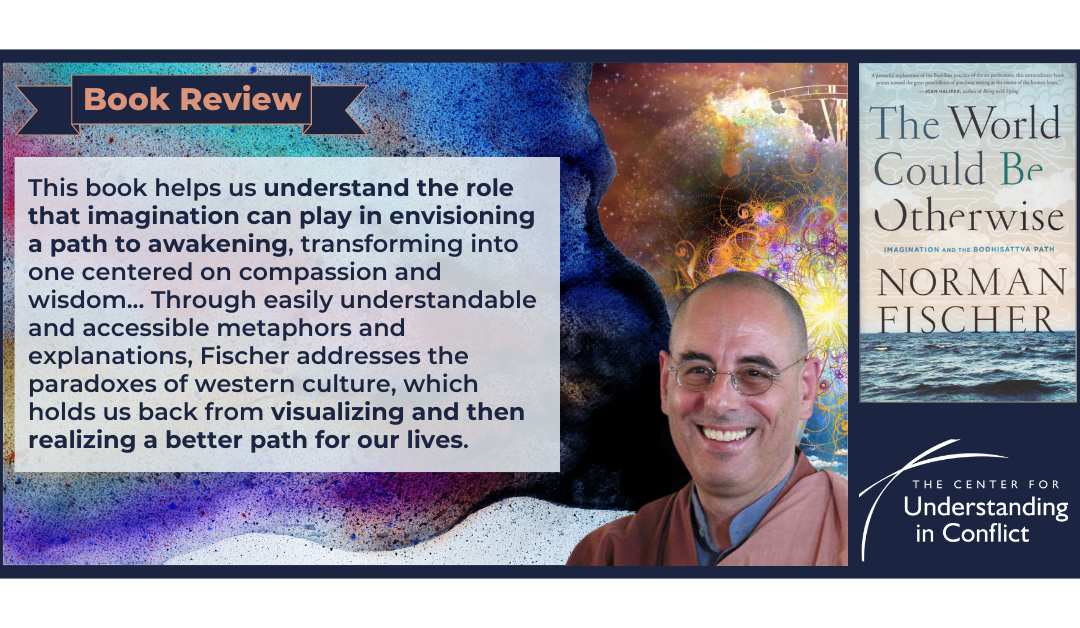Review by Gary J. Friedman –
In The World Could Be Otherwise: Imagination and the Bodhisattva Path, poet, author, Zen Buddhist priest, and trainer at the Center for Understanding in Conflict, Norman Fischer, explains the six perfections from Mahayana Buddhism with practices at the end of each chapter to bring the teaching – told through stories, anecdotes, and examples – into practical steps that the reader can take daily to begin altering their outlook and inner vision as a means toward healing, growth, and understanding.
Visualizing the end of the spiritual path can be one of the most incredible and fulfilling acts of imagination we can experience. This book helps us understand the role that imagination can play in envisioning a path to awakening, transforming into one centered on compassion and wisdom. Fischer helps the reader understand that challenges to doing so come partly from a lack of imagination. Through easily understandable and accessible metaphors and explanations, Fischer addresses the paradoxes of western culture, which holds us back from visualizing and then realizing a better path for our lives.
Fischer’s practical advice presents solutions rooted in everyday experience that help form a foundation for practitioners while providing background for understanding the principles of the Bodhisattva Path while focusing on the “six perfections” – generosity, ethical conduct, patience, joyful effort, meditation, and understanding. With guidance, the reader can begin to imagine a better future in a world that constantly fills our minds with visions of darkness or futility as we face the challenges of each new day beleaguered by the news, social media, and public opinion. With this reset, one can begin to reset their outlook, improve relationships, and start to take steps to bring that vision to reality, changing our everyday life while making advances to improve the world we live in with each small, mindful step towards it.
For mediators, The World Could Be Otherwise provides context and clarity on the issues that disrupt and contort the ability to visualize or imagine a different outcome or path forward. In the same way, these principles apply to the individual life path; it is also helpful to understand that the root of these issues can also act as a block toward seeing a resolution or way forward out of conflict beyond the reality that one has constructed in their mind.

